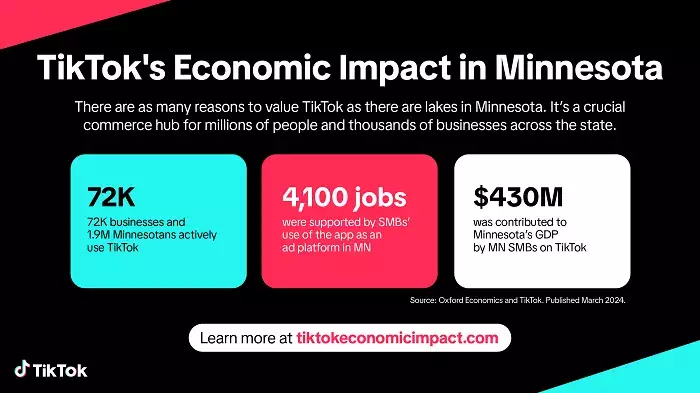It seems that TikTok’s recent attempts to oppose the sell-off ruling in the U.S. may not be working as intended. Despite showcasing the platform’s economic impact in specific U.S. states and urging its user community to lobby senators, the sell-off bill has already been approved. This raises the question of the relevance of TikTok’s current approach in light of the bill’s passing.
The Counterproductive Nature of TikTok’s Influence
Earlier in March, TikTok attempted a similar tactic by sending creators to Washington to voice opposition to the bill in person and encouraging U.S. users to contact their representatives. However, these efforts did not prevent the bill from being passed, and may have even raised concerns about TikTok’s influence over political outcomes. By continuing to highlight its value to the U.S., TikTok may be undermining its own position and cementing doubts about the app’s intentions.
Despite pursuing legal challenges to the sell-off bill, TikTok may face an uphill battle in rolling back the decision. While TikTok sees the sell-off as a ban imposed by its Chinese parent company, the U.S. Government’s actions are based on national security concerns. This legal rationale is likely to uphold the sell-off bill, rendering TikTok’s efforts to rally support potentially ineffective.
As TikTok finds itself in a difficult position with limited options, it is unclear how the company plans to navigate the sell-off ruling. The ongoing legal battles and attempts to challenge the bill may ultimately prove futile in the face of national security interests. Despite TikTok’s efforts to drum up support and challenge the ruling, the final decision rests with the U.S. Government.
TikTok’s attempts to oppose the sell-off ruling in the U.S. may be failing due to the ineffective nature of its lobbying efforts, the counterproductive influence it has exerted, and the legal challenges it faces. The company’s position appears to be mired in a stalemate, with no clear path forward until a definitive decision is made on its future steps.


Leave a Reply